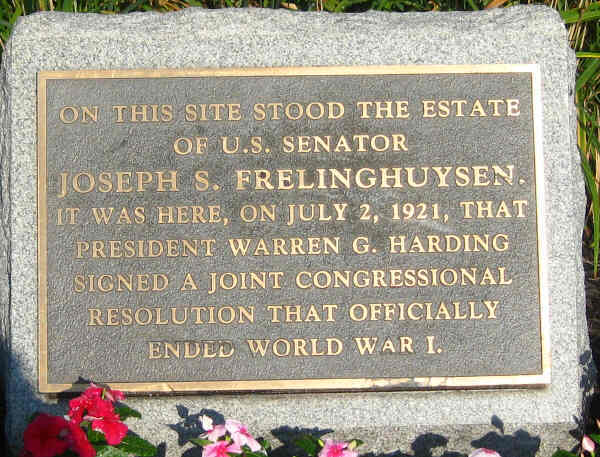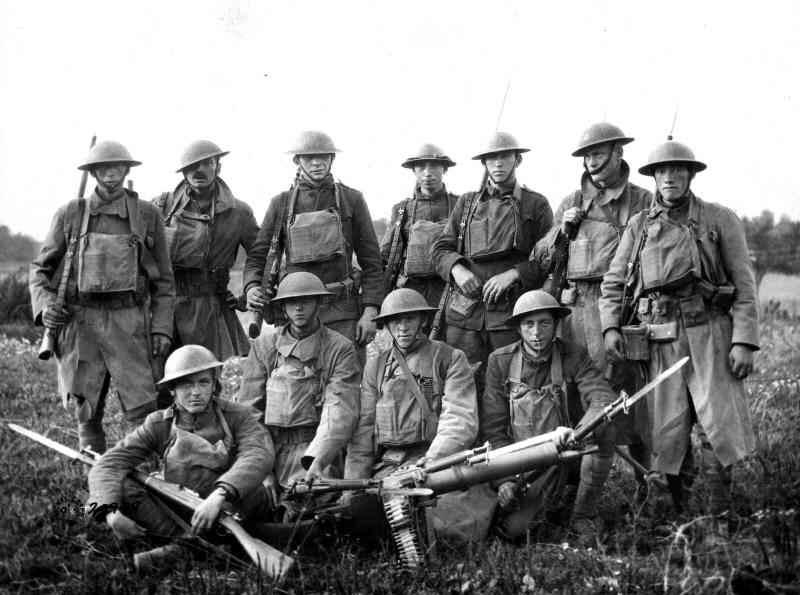
In this article we take a look at what the town of Raritan was like and what it experienced during these challenging times.
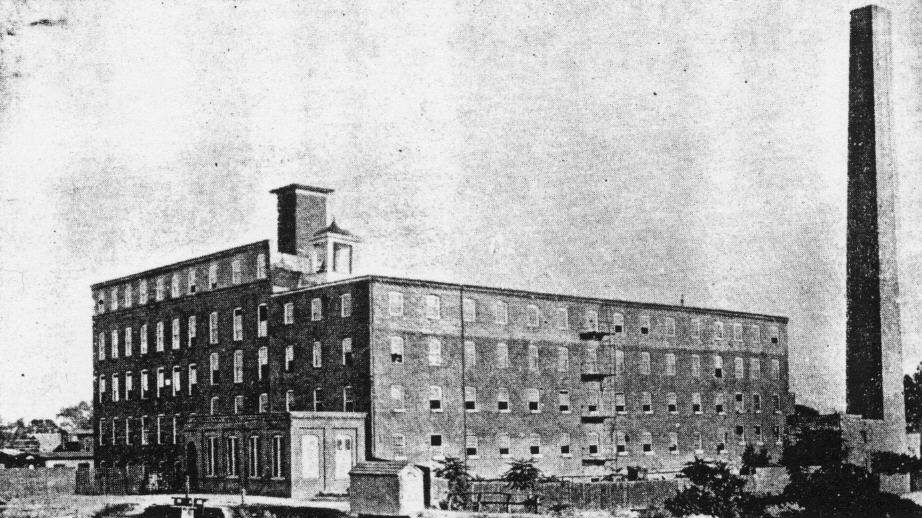
The biggest was the Raritan Woolen Mills which had several buildings. Kenyon Machinery had a complex of buildings along the river. On First Avenue was the Raritan Iron Foundry and a macaroni factory. Finally, the Raritan Creamery was along the river. “World War I” would break out in Europe in 1914, but it was not until April of 1917 that the U.S. would join the fight. Once the U.S. entered the war the mobilization and shipping out of our boys happened quickly.

The front page of the local weekly newspaper “The Unionist Gazette” would list the local men who were going into the military. Often a group photo would accompany it.
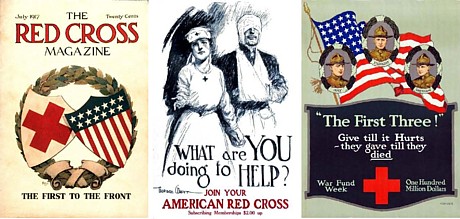
The Red Cross had several tasks.
They would knit many much-needed sweaters for the troops. Work rooms to do the knitting were available if one did not have the needles and thread at home. They also cut and assembled cloth that would be used as surgical dressings. Supplies were collected for the war-ravaged civilians in several European countries.
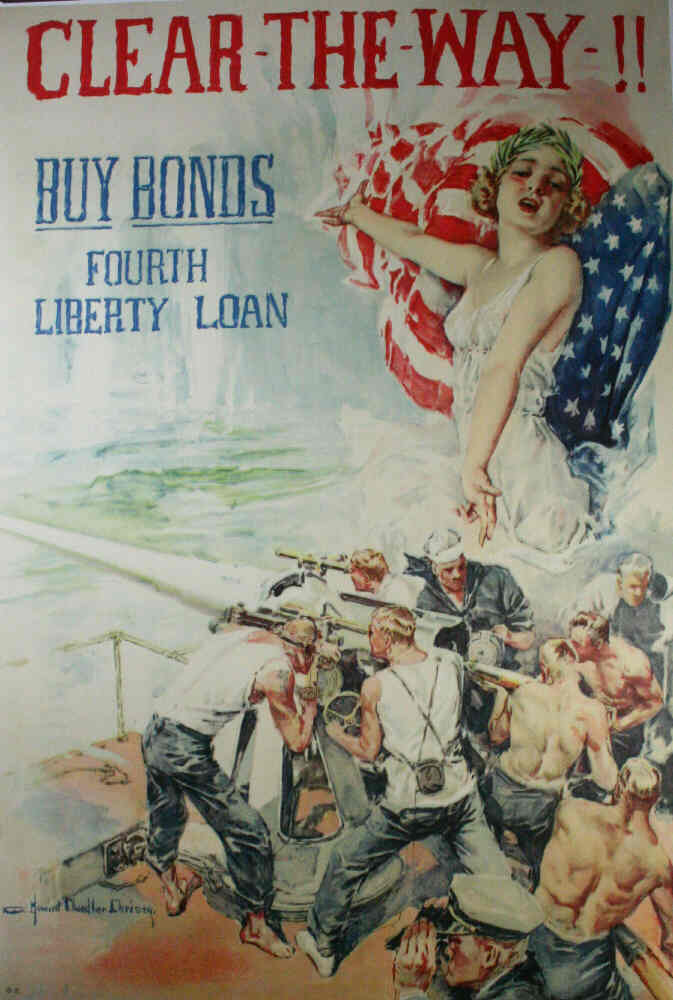
Each town, based on its size, would be assigned a quota. These quotas were publicly tracked and the towns that exceeded their quota were to be honored in some way after the war. Raritan, who had volunteers going door to door, exceeded its quota especially in the 4th loan drive. (Because of this, after the war, in 1920, a cargo ship would be named “Natirar” - which is “Raritan” spelled backwards.)
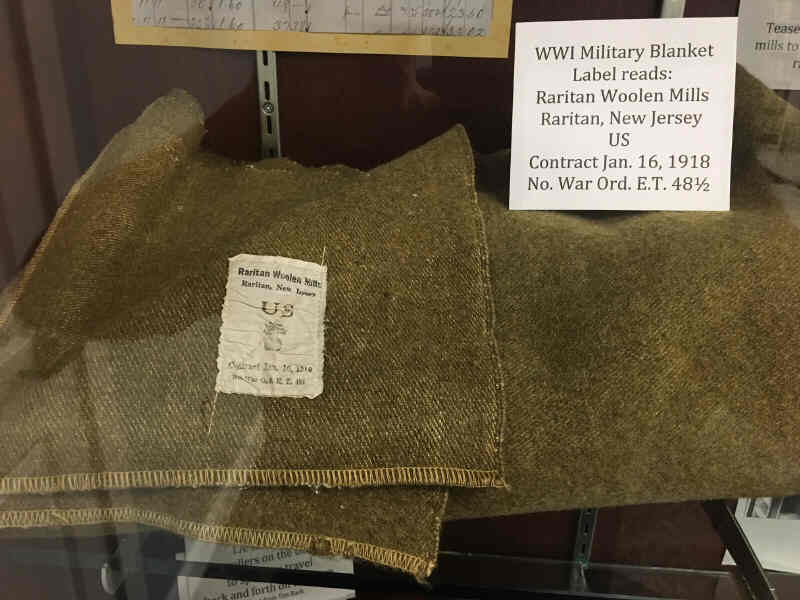
(Today one of these blankets is on display at The Raritan Library.)

The local newspaper in an editorial called him a grouch and went on to say that he was only concerned with his own future.
He would quickly respond with a letter to the newspaper saying, “Inefficiency will never win this war against the military machine which the German Kaiser commands. My sense of duty will not allow me to remain silent. To sit idly by and do nothing when things are not right is damnable and fatal”.
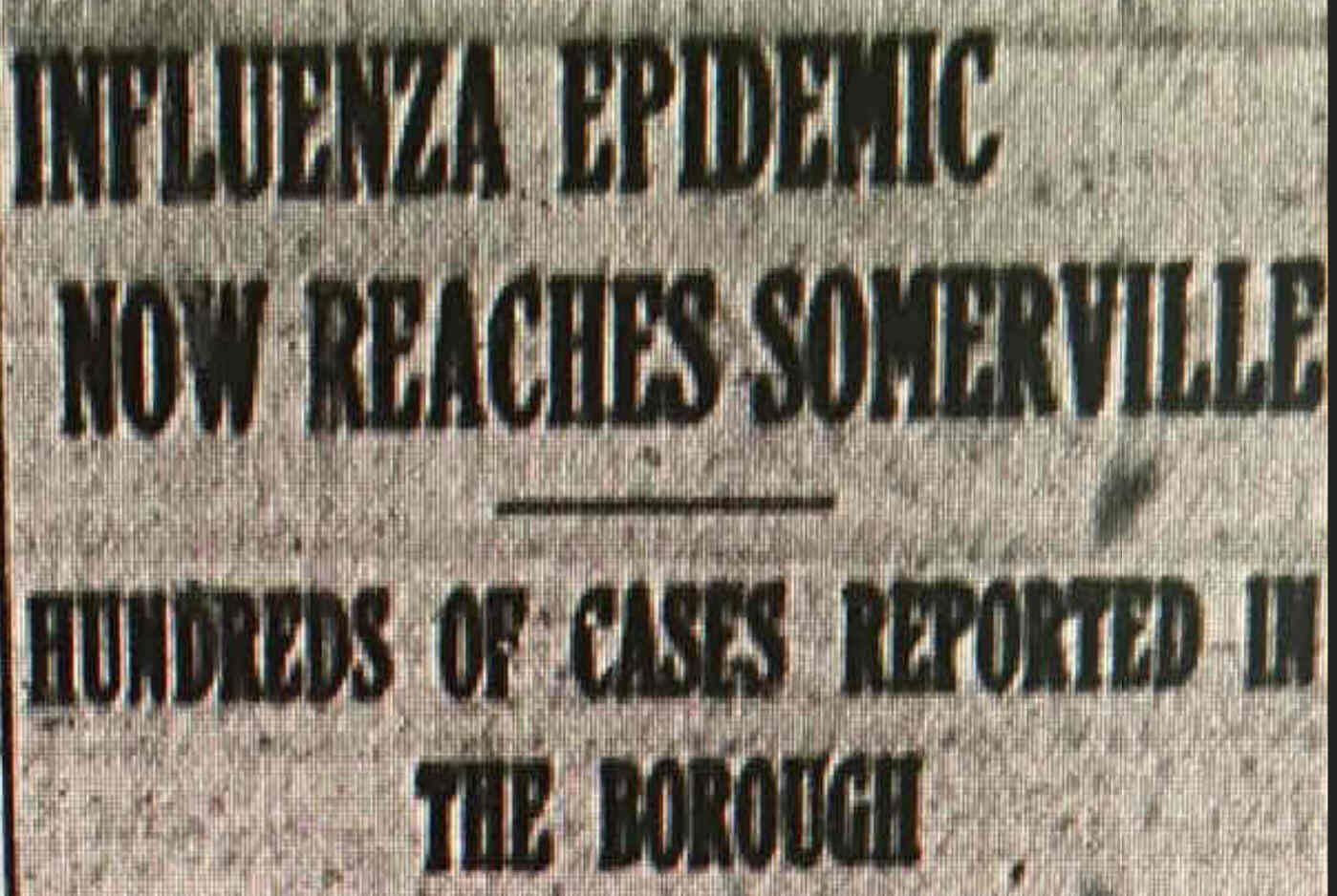
Then, starting in September, the newspapers started reporting about an outbreak of the flu that was spreading throughout the world. At first this did not cause much worry as there had been mild outbreaks before. But as September and October came the flu reached epidemic proportions hitting most towns in the U.S. including Raritan. This crisis would come to be referred to as the “Influenza Epidemic” .
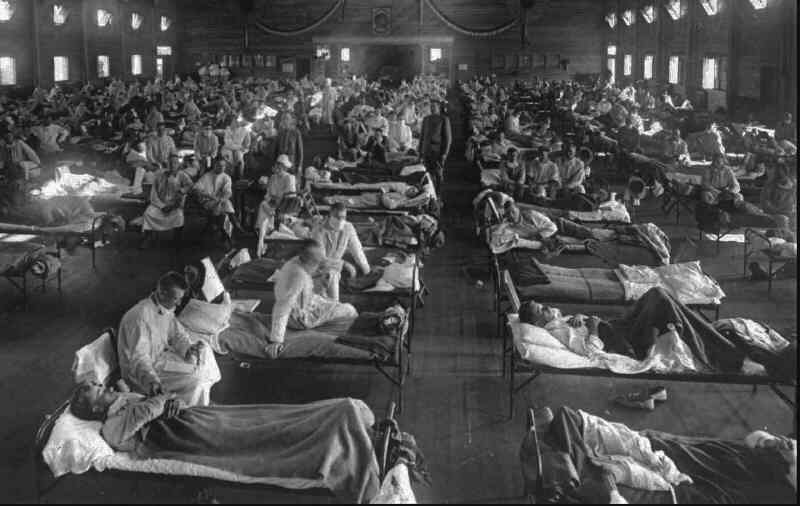
Somerset Hospital, then in its original location, was way over capacity. For a while a secondary hospital was setup in an abandoned school building in Somerville.
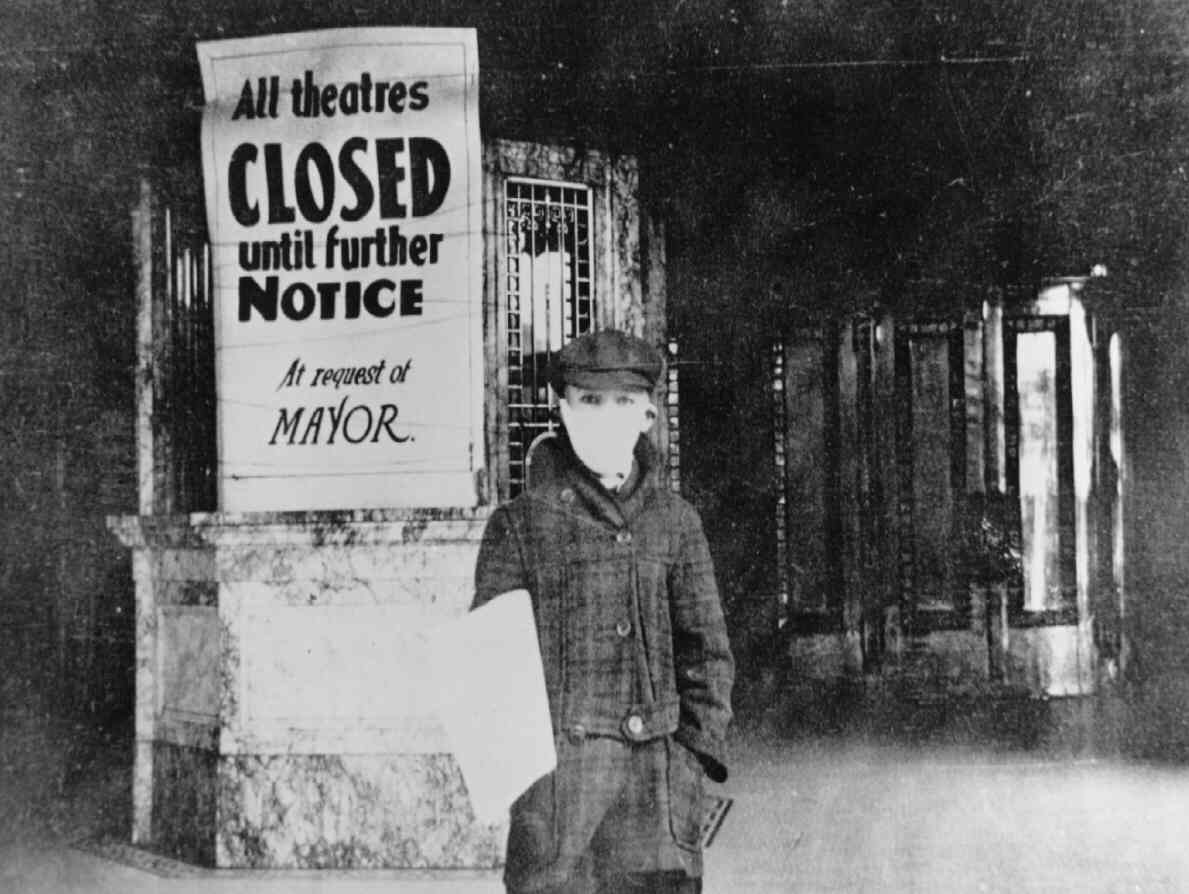
But the national toll was still staggering as over 600,000 people in the U.S. would die from it. While the local newspapers never reported final death tolls by town, dozens of people in Raritan, Somerville, and Bridgewater died from the influenza..
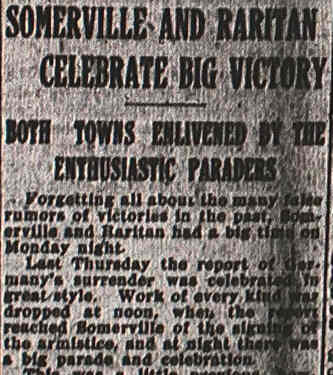
At the moment the death toll of the local boys who went overseas seemed very light. But information traveled slowly in 1918. The fighting overseas had been intense - especially at the end - and the soldiers had recently been hit hard by the influenza epidemic. So when the end of the war was announced most of the deaths had not yet been reported to the home front. In the days ahead many families would be notified that their son or husband had died overseas. Raritan would have eight of their own killed in the war. They were Tony Carnevale, Peter Kaushoffer, John Kline, Andrew Kollar, Peter Leibig, Sante Moretti, Felice Petrocelli, and Angelo Simonitti.
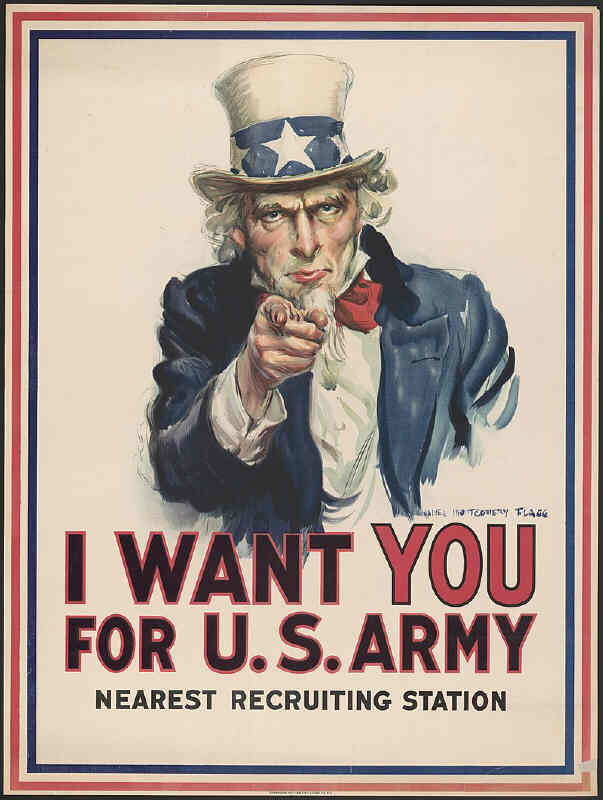
At this event Senator Joseph Frelinghuysen spoke to the soldiers telling them “Raritan is proud of you. For you have added to the glory of this grand old patriotic town.” He later said “Raritan is a fighting town. It always has been one. It anyone doubts this let him start something.”

Unfortunately, no photos of those that we lost in the First World War are known to exist. If anyone has one please contact this author at brucedoorly@gmail.com.

That was nearly three years after the war’s end as the final paperwork had been delayed.
